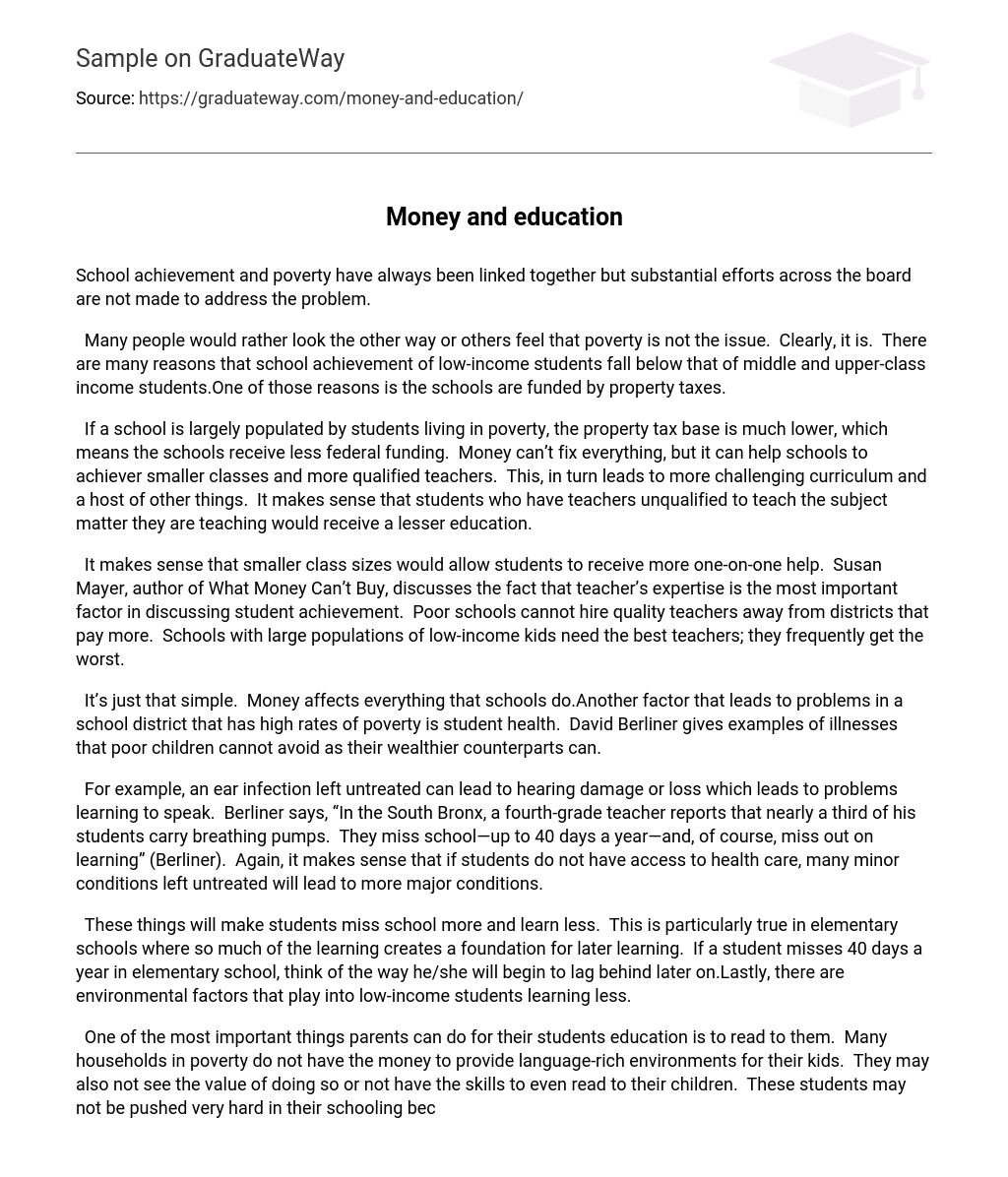School achievement and poverty have always been linked together but substantial efforts across the board are not made to address the problem.
Many people would rather look the other way or others feel that poverty is not the issue. Clearly, it is. There are many reasons that school achievement of low-income students fall below that of middle and upper-class income students.One of those reasons is the schools are funded by property taxes.
If a school is largely populated by students living in poverty, the property tax base is much lower, which means the schools receive less federal funding. Money can’t fix everything, but it can help schools to achiever smaller classes and more qualified teachers. This, in turn leads to more challenging curriculum and a host of other things. It makes sense that students who have teachers unqualified to teach the subject matter they are teaching would receive a lesser education.
It makes sense that smaller class sizes would allow students to receive more one-on-one help. Susan Mayer, author of What Money Can’t Buy, discusses the fact that teacher’s expertise is the most important factor in discussing student achievement. Poor schools cannot hire quality teachers away from districts that pay more. Schools with large populations of low-income kids need the best teachers; they frequently get the worst.
It’s just that simple. Money affects everything that schools do.Another factor that leads to problems in a school district that has high rates of poverty is student health. David Berliner gives examples of illnesses that poor children cannot avoid as their wealthier counterparts can.
For example, an ear infection left untreated can lead to hearing damage or loss which leads to problems learning to speak. Berliner says, “In the South Bronx, a fourth-grade teacher reports that nearly a third of his students carry breathing pumps. They miss school—up to 40 days a year—and, of course, miss out on learning” (Berliner). Again, it makes sense that if students do not have access to health care, many minor conditions left untreated will lead to more major conditions.
These things will make students miss school more and learn less. This is particularly true in elementary schools where so much of the learning creates a foundation for later learning. If a student misses 40 days a year in elementary school, think of the way he/she will begin to lag behind later on.Lastly, there are environmental factors that play into low-income students learning less.
One of the most important things parents can do for their students education is to read to them. Many households in poverty do not have the money to provide language-rich environments for their kids. They may also not see the value of doing so or not have the skills to even read to their children. These students may not be pushed very hard in their schooling because their parents have little education and/or do not understand the importance of education in one’s life.
In other words, many factors from outside the classroom have control over what goes on in the classroom.All of these factors combine together to touch some of the reasons why lower-income students statistically do worse than others in school. David Berliner calls poverty “the 600-pound gorilla in the classroom” (Berliner). But the reasons for their failure in the classroom have so much to do with factors outside the classroom.
School is supposed to be the great equalizer, but in this country, even public education is greatly uneven. Works CitedBerliner, David. Fixing Schools Isn’t Everything, NEA Today, February 2006.Kozol, Jonathan, American Apartheid, NEA Today, November 2006.
Mayer, Susan. What Money Can’t Buy: Family Income and Children’s Life Chances,1997.





